It isn’t every day a dead man speaks to you. Much less reads your mind.
So when it does happen, I guess it is worth writing about.
The day is July 26, 2015. The dead man in question is Joseph Smith.
The person he talked to is my wife, Dee.
Here is how it all came about.
Of Salads and Spirit Babies
It is a Sunday afternoon. Dee and I are in the kitchen. She is making a large salad for us to share.
The subject of plural marriage had come up earlier that day. Specifically the fact that the LDS Church has backed off its position that plural marriage must be practiced in heaven.
This is a good news/bad news thing.
The good news is that wives won’t have to share their husbands with other women for eternity.
The bad news is that a single wife will have to put in a lot of overtime bearing and birthing the billions of spirit babies for the worlds her husband will create.
Hard as it is to believe, this idea is less popular among women than among men.
Dee is one of those women who isn’t keen on it.
A Correlation Curiosity
Now back to the kitchen confab. Dee is slicing carrots.
“You know,” I venture, “The doctrine of women literally begetting spirit babies in heaven didn’t originate with Joseph Smith.”
heaven didn’t originate with Joseph Smith.”
“Really?” Dee quizzes. “Do you know where it came from?”
“It was a later addition to the doctrine.”
“Did Joseph Smith say anything about it?”
“It’s funny,” I admit, “But the last time he ever addressed the subject was in the King Follett Discourse shortly before he died.”
“What did he say?”
“Well, I can tell you he didn’t mention anything about women giving birth to spirit babies,” I reply. “Instead, he taught that spirits have simply always existed. They were never created.”
“Wait a second,” Dee rejoins, peeling a zucchini. “You mean intelligences. Intelligences were never created. Spirits were created when they were begotten by heavenly parents.”
“Not exactly,” I say. “Certainly that is the doctrine you and I grew up with, and what is taught today. But that doctrine is actually an attempt to fuse together two different doctrines.”
Her eyebrows rise.
I explain, “The first doctrine is the one I just mentioned Joseph Smith taught—that our spirits have always existed. They have no beginning and no end.”
“And the second doctrine?”
“That’s the one taught in the 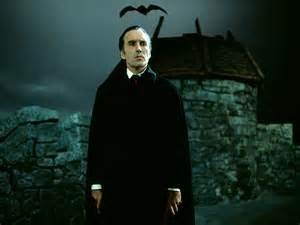 LDS Church today—the idea that our spirits are literally begotten in the premortal existence.”
LDS Church today—the idea that our spirits are literally begotten in the premortal existence.”
“What do you mean these two ideas got fused together?”
Doctrinal Fusion
“Joseph Smith taught our spirits are eternal. After his death, church leaders taught that spirits have a beginning when they are begotten by heavenly parents.”
“So somebody later fused these two ideas together?” she asks, dicing onions.
“Yes. B. H. Roberts.”
“How did he fuse them together?”
“Well, the first thing B. H. Roberts did was insist that any time Joseph Smith said our spirits are eternal, what Joseph Smith really meant was ‘intelligence.’ But Joseph Smith used the terms ‘intelligence’ and ‘spirit’ interchangeably. 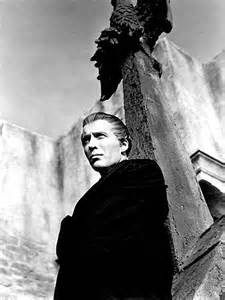 They were the same thing to him. He also sometimes referred to it as the ‘mind’ of man.”
They were the same thing to him. He also sometimes referred to it as the ‘mind’ of man.”
“Isn’t there something about that in the Book of Abraham?” Dee muses. “You take over here. I’m going to get my scriptures.”
Spirits Are Gnolaum
Dee vanishes from the kitchen and returns shortly with her triple combination. She opens to Abraham and searches.
“Here it is!” she exclaims. “Abraham 3:18–Howbeit that he made the greater star; as, also, if there be two spirits, and one shall be more intelligent than the other, yet these two spirits, notwithstanding one is more intelligent than the other, have no beginning; they existed before, they shall have no end, they shall exist after, for they are gnolaum, or eternal.”
“Nothing about a spirit birth there,” Dee concludes. “It would be hard for a spirit to be born into existence when Abraham says the spirits ‘have no beginning.’ Now, what were you saying about B. H. Roberts?”
Intelligence versus Spirit?
“Anytime Joseph Smith referred to the part of us that has existed forever, B. H. Roberts insisted that was not ‘spirit’ but ‘intelligence.’ In other words, he made a sharp distinction between our intelligence and our spirit. Our intelligence has lasted forever, but our spirit has not. At least, that’s what B. H. Roberts said.”
“I don’t like it when a scholar comes along and changes words to fit an agenda.” My wife begins washing the ripe red tomatoes.
“B. H. Roberts was fusing Joseph Smith’s teachings with those of subsequent leaders.”
“In what way?”
“By making the intelligence something that had always existed, B. H. Roberts incorporated Joseph Smith’s idea of the eternal nature of man.  By making the spirit something that had not always existed, B. H. Roberts incorporated the later church teaching that the spirits of humankind were literally begotten by our heavenly parents.”
By making the spirit something that had not always existed, B. H. Roberts incorporated the later church teaching that the spirits of humankind were literally begotten by our heavenly parents.”
“That seems dishonest. That’s called ‘spin.’”
“It is a time-honored theological pastime.”
“Being dishonest?”
“Sort of. But I mean harmonizing conflicting doctrines into a new and streamlined version. That way we don’t have to pick whether Joseph Smith is right or whether subsequent church leaders are right. They can both be right together.”
“Or both wrong together.”
“That is a down-side, admittedly.”
Eternal Marriage and Spirit Babies?
“But didn’t Joseph Smith also teach about marriage in heaven? And doesn’t that mean having spirit babies and everything?” My wife is washing the crispy lettuce.
“There’s a couple of funny things about that.”
“Like?”
“Like how is it that two resurrected beings with bodies of flesh and bone end up having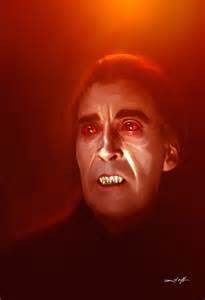 babies who are made of spirit.”
babies who are made of spirit.”
“I always thought that was kind of odd.”
“Joseph Smith gave the revelation on plural marriage in 1843, but a year later in 1844 right before he dies, he says spirits are eternal. You would think if D&C 132 meant celestial beings have spirit babies, he would have mentioned something about it. But he doesn’t. Not then or one year later in the King Follett Discourse.”
“And the Book of Abraham was published in the Times and Seasons in 1842,” Dee observes. “So in 1842, Abraham 3:18 says spirits have no beginning; in 1843 Joseph Smith gives the revelation on plural marriage in D&C 132 that says nothing about celestial marriages producing spirit babies, and in 1844 Joseph Smith again says that spirits are eternal?”
“That about sums it up,” I answer.
“And Joseph Smith’s 1844 statement is in the King Follett Discourse?”
I nod.
“I would like to hear that.”
The King Follet Discourse–Unexpurgated
I leave the kitchen to rummage in another room. I find my dog-eared paperback edition of The Teachings of the Prophet Joseph Smith. I open it up and find the right place. Pages 354-55. It is underlined. I bring it back to the kitchen.
I begin to read.
I want to reason more on the spirit of man; for I am dwelling on the body and spirit of man–on the subject of the dead. I take my ring from my finger and liken it unto the mind of man–the immortal part, because it has no beginning. Suppose you cut it in two; then it has a beginning and an end; but join it again, and it continues one eternal round. So with the spirit of man. As the Lord liveth, if it had a beginning, it will have an end. All the fools and learned and wise men from the beginning of creation, who say that the spirit of man had a beginning, prove that it must have an end; and if that doctrine is true, then the doctrine of annihilation would be true. But if I am right, I might with boldness proclaim from the house-tops that God never had the power to create the spirit of man at all. God himself could not create himself.
“That is powerful,” Dee says, spinning the lettuce to dry it and flecking small drops of water on the pages of my open book. “So Joseph Smith’s last word on the subject was that our spirits were not created?”
“That’s right.” I brush at the water drops and read the next sentence.
Intelligence is eternal and exists upon a self-existent principle. It is a spirit from age to age, and there is no creation about it.
“Interesting,” she says. “And I can see right there what you mean about Joseph Smith using the words ‘intelligence’ and ‘spirit’ interchangeably.” Dee looks over my shoulder. “What are all those footnotes about?”
The Devil is in the Footnotes
There are indeed a lot of lengthy footnotes here, some taking up half the page. 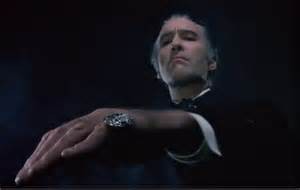 I flip the pages to show Dee there are virtually no footnotes anywhere else in the book, but they come fast and furious in the King Follett Discourse.
I flip the pages to show Dee there are virtually no footnotes anywhere else in the book, but they come fast and furious in the King Follett Discourse.
I answer, “The purpose of all these footnotes is to make sure the reader doesn’t think Joseph Smith actually meant what he said.”
“For instance?”
“For instance footnote 7.”
It appears to be very clear that the Prophet had in mind the intelligence, when he said “the soul–the mind of man–the immortal spirit,” was not created or made, and he did not have reference to the spirit as a begotten child of God. It was the doctrine of the Prophet, and is of the Church, that the spirits of men are begotten sons and daughters of God.
“So according to the footnote, Joseph meant intelligence when he said spirit?” Dee asks.
“Yup.”
“Why would they say that? And why would they say it was ‘the doctrine of the Prophet’ that spirits are begotten of God?” Dee asks.
All Roads Lead to Rome
“Because in Mormonism, all doctrinal roads must  lead to Joseph Smith, whether it is true or not. The same sort of thing was done in the 1969 First Presidency Statement on the priesthood ban.”
lead to Joseph Smith, whether it is true or not. The same sort of thing was done in the 1969 First Presidency Statement on the priesthood ban.”
“What do you mean?”
“Even though Joseph Smith never taught the priesthood ban, and actually approved the ordaining of black men to the priesthood, the 1969 First Presidency Statement says:
From the beginning of this dispensation, Joseph Smith and all succeeding presidents of the Church have taught that Negroes, while spirit children of a common Father, and the progeny of our earthly parents Adam and Eve, were not yet to receive the priesthood, for reasons which we believe are known to God, but which He has not made fully known to man.
“But Joseph Smith never taught that,” Dee says.
“Exactly,” I say. “The Church felt compelled to say he did to give their later position greater weight.”
“Just like the claim in the footnote that Joseph Smith taught spirits were begotten of God?”
I nod.
Joseph Speaks from the Grave
“But if God isn’t our literal Father in Heaven,” Dee asks, “What is the relationship between God and these eternally existing spirits?” She takes the lettuce out of the spinner and starts shredding it.
“That’s a good question,” I say. “According to Joseph Smith, God is an eternally existing being who simply ‘finds’ himself in the midst of these eternally existing spirits.” I read the next section.
The first principles of man are self-existent with God. God himself, finding he was in the midst of spirits and glory, because he was more intelligent, saw proper to institute laws whereby the rest could have a privilege to advance like himself.
Dee stops what she is doing. She looks up. “I like that,” she says. “That really speaks to me.”
I smile, because I know what comes next.
I continue to read:
This is good doctrine. It tastes good. I can taste the principles of eternal life, and so can you. They are given to me by the revelations of Jesus Christ; and I know that when I tell you these words of eternal life as they are given to me, you taste them, and I know that you believe them.
As I read this 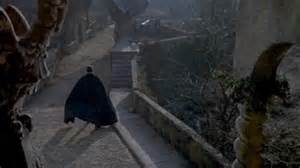 last part, my wife’s eyes start getting big. It’s like Joseph Smith somehow knew the impact his words would have on her.
last part, my wife’s eyes start getting big. It’s like Joseph Smith somehow knew the impact his words would have on her.
“How does it feel to have a dead man talk to you?” I ask.
“Pretty amazing,” she says.
Epilogue
And that is the story of how a dead man talked to my wife. And not only talked to her, but read her mind and predicted the impact his words would have on her heart.
What would you call a person who can do something like that 171-years after he is dead and buried?
I don’t know.
A prophet, maybe?

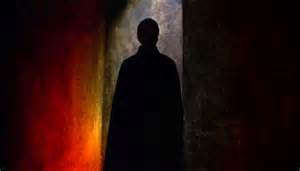
![th[10]](https://rationalfaiths.com/wp-content/uploads/2015/07/th10-300x159.jpg)



I LOVE THIS!
As a woman in the church,
I am officially set Frrrrrreeeeeeee!
My eternal tubes are tied because Joseph Smith said I don't have to!
Yay for me!
I LOVE THIS!
As a woman in the church,
I am officially set Frrrrrreeeeeeee!
My eternal tubes are tied because Joseph Smith said I don’t have to!
Yay for me!
Glad you enjoyed it!
I have thought about the concept of heavenly mother… Just this past Sunday in RS the teacher said the reason we don’t talk of her is because she is too sacred, to which I thought, or perhaps it’s because she isn’t there, does not exist.
Which also makes sense to why homosexuality is okay, because you don’t need a man and a woman to make spirit babies, if there is such a thing?
The idea that Heavenly Mother is not mentioned in church due to her sacredness is an old canard invented by an institute or seminary instructor and finds no basis in the teachings of any church leader.
At least that was the conclusion reached a few years ago in a paper published in BYU-Studies.
My take is that this is merely a convenient excuse to exalt Heavenly Mother while simultaneously marginalizing her in favor of the church patriarchy.
Is she more “sacred” than Heavenly Father? Is she more “sacred” than Jesus?
Give me a break!
My apologies to your RS teacher.
This is all based on the false belief that what is known as the "King Follett Discourse" is actually what Joseph Smith said. But this received text is really a cobbling together (again by Roberts) of four widely variant "transcriptions" of what Smith said on April 7, 1844, made by Willard Richards, Wilford Woodruff, Thomas Bullock, and William Clayton. Good luck figuring out what Smith truly said and truly meant! These four differing accounts are found at http://josephsmithpapers.org/site/accounts-of-the-king-follett-sermon
You are correct that the TPJS version is a theologically biased amalgamation of the four transcriptions.
But even with Joseph Fielding Smith (the editor of TPJS) trying as hard as he can to make it the “intelligence” that existed forever, he is still left with Joseph Smith saying it is the spirit that is eternal.
Over and over again.
This also lines up with the teaching in the Book of Abraham published in 1842.
In light of this, I think it a relatively safe conclusion that the eternal nature of spirits (as opposed to intelligences) is indeed what Joseph Smith taught in Nauvoo on this occasion.
In increments we are moving to the realization that consciousness is fundamental and that matter arises out of consciousness, not the other way around. As individual conscious beings (spirits), our home is in the spirit world along with other spirits, where we existed prior to our temporary mortal existence and to where we will return when we leave our mortal bodies. Since God is spirit and we, fundamentally, are spirit (probably without gender), it appears that spirit is sufficient and there is no need to expect a resurrection which involves a reuniting of our eternal spirit with our temporary mortal body.
You may be right about this, Tom.
While Joseph Smith’s Nauvoo teachings favored a resurrected God with a body of flesh and bone, his earlier Kirtland teaching in the Fifth Lecture on Faith describes a God who has a spirit body.
For me this falls under the category of a tempest in a teapot. Wouldn’t we be on safe grounds saying, along with God, “For, behold the mystery of godliness, how great is it!” The relationship between “intelligences”, “intelligent”, “spirit” and “spirits” just isn’t neat and tidy for me. Not before your interesting and thought-provoking post, and not after it. A reader of a 1992 article in the Encyclopedia of Mormonism would discover most of what you here set out, including B.H. Roberts’ take on the matter, which was there specified as only one opinion.
I see no reason to hold that spirit children are produced by a nine-month pregnancy in a womb, repeated over and over, ad infinitum. In that regards, women can certainly rejoice, although I point out that suffering in childbirth was a consequence of the Fall; of the non-suffering nature of deliveries during “non-Fall” childbirths nothing has been revealed. The scope of the creative endeavors of exalted couples, and the “mechanics,” if you will, of any such creation are likewise simply unknown, except that whatever is done, it is apparently done together as a couple.
Perhaps, as you contend, there are no such spirit births, adult spirits just somehow “being there” from the get-go. But this just directs the discussion elsewhere. Are spirits in some sort of common pool somewhere, where they can be selected for pre-mortal and mortal worlds constructed by their “adoptive” parents? And on and on. But the Savior is described as the “Firstborn” – what are all the implications and meanings of this? Also D&C 132:19, where the glory resulting from exaltation is described as “a fullness and a continuation of the seeds forever and ever.” Well, what does that mean? It’s certainly suggestive. Sounds like something to do with progeny, but again the fullness of the meaning is not given. I guess we should add “seeds” to our list of intriguing terms.
As for the nature of embodiment: Since there is no such thing as non-material matter, spirit bodies have substance. (Joseph Smith said something about its nature.) I have never bought into the image of spirits as nearly transparent, cloudy entities. I think the image of Casper the Friendly Ghost has led us astray here. One would not need to grasp the hand of a spirit to determine its nature if you could already see right through it. I was in a Gospel Doctrine class once where someone opined that spirits, not having bodies, cannot taste or smell. Really? What do they see and hear and speak with, I wonder? Do spirits just walk right through each other? And are we to believe that our Heavenly Parents (however you want to define this) were never able to hug their children for eons unmeasured? The thought, as Eliza R. Snow so attractively phrased it, “makes reason stare.” I for one don’t believe it. Our mortal bodies, because of our mortal, fallen nervous system, have limited capabilities. We can’t feel everything, see across all wavelengths of light (remember how ultraviolet and infrared flow away from the little band of visible light in the middle of the spectrum?), or hear everything (dog whistle: human hears nothing, dog goes nuts). The division between spirits and resurrected bodies may not be the “wholly other” relationship we may sometimes imagine. Spirit bodies need not float out of a womb.
In the end, I’m with Hugh Nibley on this: “. . . the moral is that everything goes in a free discussion as long as the discussion is going on. Give it time and everything will come out in the wash” (From Bird Island). There is nothing in the scriptures or in the theological musings on the nature of the eternities (which nature is kind of beyond us, I think) that is going to affect my support of church leaders.
I appreciate your thoughtful comment, Tim.
There was a lot of stuff I left on the cutting room floor, as seems to be a common motif in my blogs, simply because there isn’t room enough for everything.
I also had thought of the Encyclopedia of Mormonism, though, which if memory serves said something to the effect of the exact means as to how spirit children are produced has not been revealed.
The thing I find interesting is that even though the LDS Church has completely bought into the idea of heavenly mothers bearing and birthing spirit babies into existence as spirits, Joseph Smith is not only silent on the issue, he actually says something quite contradictory–that spirits have always existed–there is no creation about them.
And this was his last recorded statement on the subject just prior to his death.
Thanks again for your comments!
Issues of individual identity, past, present and future, should not be undervalued. Think how many other LDS positions are influenced by thinking spirits are literally “begotten” of God.
I say literally to differentiate the figurative scriptural use of begotten in relation to being born again.
If this was a real doctrine then church leaders would actually teach the logical progression such as that God has a wife(s), that we grew up from Spirit babies to toddlers to youth that went through puberty and became adults, that some of us are “older” spirits than others, that we may have a twin spirit, that we have a spiritual birthday/moment.
When people try to make God’s world just like our world, I think they are not giving God’s existence enough credit. I also think they are limiting God in a way that is unnecessary, in order to try to understand and relate to God. Joseph Smith’s words were clearly more broad than the current Mormon folklore.
Thanks for your thoughts, Chris!
It made me think what birthdays must be like in the premortal existence.
Millions of kids having a birthday every freaking day of the year.
That’s a lot of presents.
How does God get anything done?
According to Neal Maxwell God has nothing to do with the arrangements of birthday parties that is a woman’s responsibility.
“Finally, remember: When we return to our real home, it will be with the “mutual approbation” of those who reign in the “royal courts on high.” There we will find beauty such as mortal “eye hath not seen”; we will hear sounds of surpassing music which mortal “ear hath not heard.” Could such a regal homecoming be possible without the anticipatory arrangements of a Heavenly Mother?” April, 1978 General Conference
Wince!
The Hindu have a goddess named Kali. The ego sees Mother Kali and trembles with fear because the ego sees in Her its own eventual demise. A person who is attached to his or her ego will NOT be receptive to Mother Kali and she will appear in a fearsome form. A mature soul who engages in spiritual practice to remove the illusion of the ego sees Mother Kali as very sweet, affectionate, and overflowing with incomprehensible love for Her children.
Only ego-centric men would devise an oppressive, ridiculous, and slavish damnation for women. For eternity.
An eternity of men f******, and women bearing the results.
Forever.
“Move over darling, my seed is springing forth in thy womb! Oh fair daughter of God, go to thy chamber and await the birthing hour of my magnificent seed, in thee, thus planted this celestial day.
No really. I’m serious. Get thee hence.
Bring in the next wife!”
Reminds me of that horrendous 20-virgin belief…
Perhaps if Cadbury chocolate, telestial masseurs, terrestial servants, celestial comas, and Tahiyian-type-beachfront-diva-dens where part of the parcel, it’d make this exhalted real estate a bit more desirable? A bit more delicious for the LDS woman? Spa treatments for eternity anyone?? —whilst the hubby plows more fertile grounds?
I agree, and savour the words of JS, which your wife responded to. Women are really, really adept at slicing away the unusable bits and finding the best fruits (or in this case, vegetables.)
I’ll bet she makes one hell of a salad.
Powerful words, indeed, Pearl!
A second Pearl Harbor, of sorts.
I think you are right that the Mormon view of heaven is skewed a bit in favor of the men.
Which kind of makes you think that maybe it was created by men in the first place.
And yes, my wife does indeed make one mean salad.
I, on the other hand, preach one mean gospel.
All hail, Kali!
Ooooooo!!!! This blog is delicious. Gothic, thought-provoking, clarifying, appetizing!
Those who are stuck in clay, are stuck in gender and gender roles.
Loosing the constraints applied in mortality, liberate an eternal soul for eternal progression. I don’t see how we can become all-wise and just, if we are forever female, or forever male. Maybe God is God because God has been all things.
And maybe God continues to be all things?
Paul said he became all things to all people to teach the gospel.
Would we expect anything less of God?
Thanks for your great comments!
Where did the doctrine that we are literally spiritually begotten of the Father come from?
That honor appears to go to Orson Pratt.
“Eternal families” take on a whole new meaning.
Has a bit of a workhouse ring to it.
women=silent and abject forever. The best career women can aspire to is Midwife. The best reward? Brood mare.
I will bank on what JS said, and forego the other tripe with their subliminal sexual appetites: and refuse to be part of the deserving poor.
LDS leadership have an easy way with thrones, dominions, and powers. The words of Roberts, come not from a loving Creator, but from a huge corporation with multi-national interests.
Read…Patriarchy.
I expect this has a great deal to do with why Mother God has been deemed too sacred to talk about.
Either that or she is busy in the kitchen feeding all those little ones.
Talk about buying in bulk!
I’ve put some thought into our Mother in Heaven. My opinion is that knowledge of her (or Her) is limited by the wickedness prevailing in this world. I suppose Alma 12:9-11 is as good a starting point as any, coupled with Moses 7:36,41 and D&C 6:26. On this planet, Satan, the overlooked force in history, has been particularly effective and savage. Any world that can produce Auschwitz, the very reification of the image of Hell, has an uphill climb. And there is no sign of let-up by the Adversary.
Think of the further multiplicity of churches and religious thinking we’d be in for if knowledge of the Mother were a common element of the Western cultural tradition, or even among Latter-day Saints. Mother pitted against Father, divided and confused allegiances, more anger. Simply this: More Divisions. (This knowledge may have been had to some degree anciently. There are certainly goddess motifs, and where did the Greeks get the idea that Zeus and the other Olympians were married and procreating? In any event, look at the result – the bickering of earth projected back into heaven, spouses at loggerheads, division into opposing camps over the Trojan War. A mess.)
And what names would the Mother be called here? What epithets? And think of the pornography we’d be in for. The “art” work. The literature. On this planet, the sky’s the limit. I wouldn’t want my companion left to the imagination of a reptile like Larry Flynt. And this goes way back. 4,000 years ago, temples in the Near East serviced the agricultural cycles with temple prostitutes, who were available to, well, jumpstart a farmer’s crops. (One of the stories in the novel, The Source, deals with this.) One of the many, many excuses for illicit sex, this one trading on the Divine Feminine.
We all know the abuses to which sex has been put in this world. The perversion of sex is a persistent theme in this planet’s history; in this respect this world is a real bottom-feeder. So the withholding of information on a Heavenly Mother may be a matter of respect on the part of our Father.
It’s what husbands do for wives.
It’s not that our Mother is a weakling; she isn’t. It may just be respect. The Father and Son have taken a fair share of abuse as is. I believe Brigham Young stated that while the Millennium would comprise many peoples other than Latter-day Saints, what would be true would be that the name of deity would not be abused as it is now. (I hope this is a fair paraphrase.) During the Millennium, true knowledge of the Mother may well be restored, even abound. It will be respectfully handled then. Adam and Eve may well have known Her in the Garden. But neither the Millennial world or the Garden is our world now. The withholding of this knowledge (as with so many other things) is part of the curse this entire planet is under, part of the common conditions we all, whatever our degree of righteousness, temporarily live with in a world too responsive to Satan. In such a climate perhaps more knowledge would, in a horrible irony, serve to hurt more souls than it would help.
I think the world is too wicked to know Her. Until that later time, then, we have the Gospel of Jesus Christ, which will certainly save us.
Aztec
Babylonian
Canaanite
Celtic
Chinese
Egyptian
Greek
Hawaiian
Hindu
Japan
Maya
Norse
Roman
Sumerian
That’s a list of cultures around the world with women as gods. Goddesses that were not abused or maligned, but worshipped.
The LDS Church offers lame excuses as to why we don’t talk about Her.
Too sacred? Too wicked to know her?
Please!
You’re talking about Her children. She and we can handle it.
Just as in other cultures comprised of Her children.
Even the early Israelites used to worship Asherah (The Queen of Heaven) alongside God. At some point in ancient history this started to become edited out in favor of monotheism, but the artifacts and inscriptions on them from the region are pretty well documented and interesting.
I’m protective of my wife, too.
That’s why I lock her in the basement and never talk about her.
This seems to be a post that elevates Joseph Smith to the status of the only prophet worthy of our attention, and proceeds on the basis that the contemporaneous notes of the discourse are wholly accurate, which may or may not be true, but are far from sufficiently reliable. This post smacks of desired premise, for which only supportive material is selected.
The one fact which is conveniently omitted by the author and many of the reverential devotees, is that God has not chosen to say a great deal about the female gender. Why he has chosen not to do so is unclear, but it cannot be that he is indifferent, mysoginistic, bound to outmoded patriarchal views or any of the other criticisms usually levelled at modern mortal leaders of the church.
It’s fine to be reverential to Joseph Smith’s teachings, but remember, God could have revealed to Joseph a lot more about women but he chose not to do so.
It is a surprisingly partisan piece for a lawyer (and I speak as a fellow lawyer). Failure to adequately deal with the ‘continuation of the seeds forever’ issue says about as much as is needed by way of critique in my view. That fact was in revelation; the discourse, was simply a discourse. There is a difference between discourse and written revelation. The discourse does not form part of the revelations of the church, and is alike the Family Proclamation in that regard. Why elevate the discourse to all-trumping doctrine? I suspect that the Proclamation would receive very different treatment by this author, even though being the work of 15 men we revere as prophets, seers and revelators.
I think the reason “God has not chosen to say a great deal about the female gender” is because men have arrogated the right to be His exclusive mouthpiece.
Pearl,
Sorry for not being clear. My response is from the viewpoint of the Restored Gospel. None of the cultures you cite worship or worshipped the True and Living God, the one whose Only Begotten Son is Jesus Christ. It’s the Mother/Goddess associated with (or who is part of, if you prefer) the True and Living God I am concerned with. There is no salvation for anyone born on this planet except through the Atonement of Jesus Christ. All knees will one day bend to Him. The Church was restored to bring souls to Christ. There is no goddess (or god) anywhere in any universe who can provide an alternative salvation.
That’s beleif. That’s faith.
You cannot know, or box a God.
Others have died for alternate God beliefs. Belief is a strong force.
Your belief is not the only one, nor relevant one.
It’s your truth, which doesn’t necessarly make it ALL TRUTH, or even truth at all. It could all be illusion and storytelling, just as you see in other faiths, and other cultures, that have their own versions of God or Goddess.
Tim,
You miss the point of view Pearl is coming from. It’s not a truth claim, it’s pointing out the worship of female diety in other religions that sparks no ill. No evil. No disrespect. No (take note) WAR.
The erasing of Mother God was not God’s doing, as history and scholarhsip shows.
Mermaidmood,
No salvation, either, and therein lies the problem.
You are right about Pearl and I speaking past each other. I am coming from a truth claim perspective. I don’t deny that there is a plethora of goddesses who have been/are now available for worship. What I don’t believe is that they form an independent spiritual bloc, separate in origin, efficacy and authority from God the Father. Or from our Mother, for that matter.
And you might want to modify the no war thing. Looking up “War Goddesses” on Wikipedia produces a list of 73 names. That number again, 73. Those who grew up with Greek mythology know that Athena wears armor and carries a spear. George Patton would run from her. She had priestesses aplenty, as well.
Think about it from the women’s perspective for a minute, Tim.
If all women have to look forward to in the Celestial Kingdom is being cut-off from their children and being relegated to sacred obscurity, what is the point?
Something my sister in law is really struggling with since she had children. She can’t imagine not attempting to be a part, or even allowing her husband to cut her off from them no matter what shenannigans they ever pull.
If it is true God lived a mortal life much like ours, than the Mother God would have lived a similar mortal life. Why is it she needs protection from her children’s sinful actions? I think she can handle it, she lived it.
Men in authority must, must, patronize woman in believing they are gentle creatures. How else would they convince their wives in allowing them to have sex with multiple women?
This just blew my mind…
Apparently beauty isn’t within the scope of the masculine for some people.
I was trying to reply to MaryAnne Holbrook above: Maryann Holbrook / August 13, 2015According to Neal Maxwell God has nothing to do with the arrangements of birthday parties that is a woman’s responsibility.
“Finally, remember: When we return to our real home, it will be with the “mutual approbation” of those who reign in the “royal courts on high.” There we will find beauty such as mortal “eye hath not seen”; we will hear sounds of surpassing music which mortal “ear hath not heard.” Could such a regal homecoming be possible without the anticipatory arrangements of a Heavenly Mother?” April, 1978 General Conference
Corbin Volluz,
Ah, I see; conspiracy over the millenia, and what’s more, conspiracy permitted by God. That clears that one up. I assume the same conspiracy theory has all prophets, including Joseph Smith as co-conspirators? but for that, I assume that the true accounts of God’s dealings with men (mankind) would have the Divine Female involvement on each occasion, or at least on a absolutely equal basis?
Never looked at this topic that way! What a great blog. What strikes me is the thought that a husband and wife of flesh and bones would have “spirit” children! Doesn’t sound too likely to me. Great topic, thank you.
Ouch! I’ve learned about Corbin Volluz far too late to join in this discussion. How is it that I didn’t know that Rational Faiths existed?
So here goes. Too late to join the conversation, but a thought that I did not see addressed in the OP or the comments.
I’ve said for a long time that Jesus is an only child.
God the Father always calls Jesus his “only begotten” son. Why would that be?
But people don’t seem to take that seriously.
Just perhaps, it is quite literal that Jesus Christ is his only begotten son.
Have you studied much of Rudolph Steiner’s works on the body (and spirit) of man?
Rudolph Steiner has some fascinating input as a “spirit scientist.” He refused to create a religion when urged to do so and finally admitted that if he were to do so, it would have to be a gnostic Christianity. When I saw this, I said *WOW* this is exactly what the Lord restored through Brother Joseph!
It is further interesting that the concept of “reincarnation” is not incompatible with the gospel and the Church even. Frankly there are some teachings about reincarnation that make a lot of sense in that we’re trying to BREAK the pattern of reincarnation via our progression and, of course, in the revealed doctrine (even though not directly stated), the SEALING ordinance breaks that pattern of reincarnation!
Further, if you look at some other interesting books (read from the Teachings of the Sea Gods: The Adept and the path Paperback – by Valerie Bonwick) there is a concept of a group of souls called an “oversoul” wherein it is necessary that the entire group progress together (atonement) or they cannot achieve the progression that they desire and cannot go to the next level of progression. It makes a lot of sense when this is understood in context of family history, the sealing ordinance, and the Savior’s Great Atonement as fulfilling the law of karma insomuch that it allows one to progress while paying back the one to whom he is indebted by the terms set forth by Messiah.
All of this also takes a new twist when you consider time is not really what we perceive it to be and is more than likely just a “classroom” teaching aid for us (as a blind man bumps through 3D space; so too do we bump through life at present).
You might find this appreciable: https://www.youtube.com/watch?v=bwhH06S4xic
Your statements about B.H. Roberts inventing this theory don’t check out with LDS sources. For example, the hymn “O My Father” is a Latter-day Saint hymn written by Eliza R. Snow in 1845, who felt inspired to write the lyrics after Joseph Smith had taught her the principle of heavenly parents.
Intelligence is the material of all spirits, but spirits are conceived by heavenly parents of each genus/family. While Joseph didn’t necessarily distinguish this, Brigham Young and other early Apostles did. If you’ll remember what God him in trouble in 1852 was his Adam God doctrine, in which he mistakenly taught that Adam was not only the father of the human race, but also the father of our spirits. He corrected this in 1870 by making clear that we all “they (Adam and Eve) and we are the offspring of Him who dwells in the heavens”. Brigham talked about the birth of spirits from heavenly parents many times throughout his tenure.
Wilford Woodruff also talked of this. Here’s a quote from a talk given on June 27, 1875 (when B.H. Roberts was only 18), “They (speaking of infants) come from their eternal Father and their eternal Mother unto whom they were born in the eternal world.” (see here: http://jod.mrm.org/18/29). There are several other examples of this early teaching, but this should suffice.